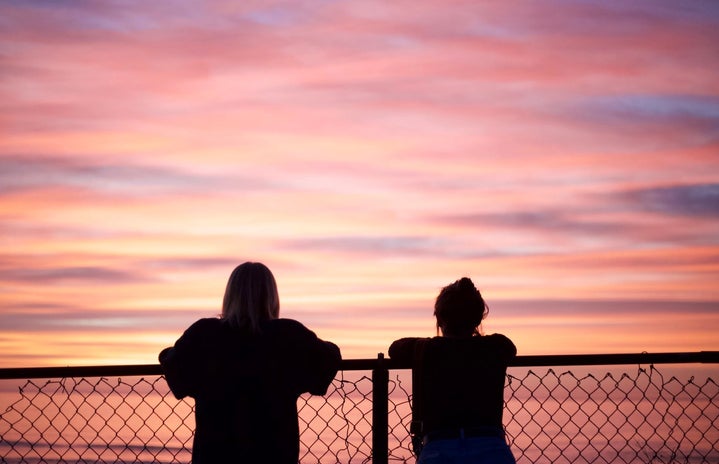I’m not going to mince my words: this year has been awful. It’s obviously been unimaginably traumatic on a global scale, but even on a smaller, more personal level, most students I know have been dealing with a lot more than they might’ve during “normal” times. The inherent nature of mental health definitely also makes it a more complex and challenging barrier to overcome: a lot of it is quite literally “all in our heads,” and it’s frustrating to accept that we can’t always unpack why we feel the way we do.
The past few months have also introduced social distancing, a concept highly foreign to everyone, but especially college students. Isolation causes us to spend a lot of time to ourselves, with ourselves as our only companion, and in such circumstances it’s very easy to feel exhausted. As someone who is closer to the introverted end of the social spectrum, I honestly love being alone most of the time. But solitude starts to lose its charm when it’s a constant state of being rather than the occasional (cherished) break from social interaction. I’ve been getting pretty sick of hearing my own thoughts, seeing my own face, going through the motions of my life with few inputs from anyone other than my own self.
Here’s some good news though: this sickness is not chronic! It is possible to tackle the fatigue and ease whatever self-imposed burden sits on our minds and hearts. While isolation may seem alienating, having all this time has definitely been an opportunity to reflect and learn about myself.

One of my personal goals has been recognizing my values and the things that are important to me. Everyone has something to turn to when times are rough, whether that thing is something generic like a long phone call with a friend, or something more specific to you, like weekly episodes of The Great British Baking Show (not that this is coming from personal experience or anything). Even if these things don’t necessarily symbolize something greater, the fact that they provide some kind of fulfillment is valuable. And during a particularly murky period — for instance, a seemingly unending pandemic — it can often be reassuring to cling to this fulfillment.
Another consequence of solitude is feeling more comfortable about simply existing. When constantly surrounded by people, there is some pressure to squeeze yourself into a mold: to be what others expect, rather than what you want. Acknowledging my interests and gaining some confidence in what I stand for has made me realize that being judged really isn’t the worst thing in the world, and it is much more important to be unapologetic than silent and acquiescent. As corny as it sounds, you technically are the star of your own show, and not a performer in someone else’s. It only makes sense to play the part with comfort, and to ask yourself how you can make it better for your own sake.
Self-isolation has also taught me the art of patience. Life doesn’t always seem to be understanding or forgiving, and there’s this constant illusion of the people around me advancing faster than I am. It definitely doesn’t help that the conventional notion of “accomplishment” is basically all about productivity rather than personal achievements. Although I try not to compare myself to my peers, falling into the trap is understandable when social media constantly perpetuates this unattainable standard of perfection. Being patient with myself involves accepting that the things I see only represent one dimension of someone’s experience, and not the whole story.

In the novel Candide, Voltaire says something along the lines of “we must cultivate our garden” — even though I live in an apartment, I see where he’s coming from! While growth may look weird and unfamiliar in the middle of a pandemic, it’s important to remember that we’re constantly cultivating spaces for ourselves and adding meaning to our lives with the resources we have. Being able to accept and adapt are some of the most joyful facets of human existence: it is more than possible to cultivate a sense of normalcy, even happiness, where there isn’t. And although most days it’s a little more challenging to embody self-love, I have faith that we can definitely still give this self-acceptance thing a shot.




